第69章 Chapter XVI. Europe(3)
Mr. Garrison had thoughtfully arranged to have us have one of the most comfortable rooms on the ship. The second or third day out I began to sleep, and I think that I slept at the rate of fifteen hours a day during the remainder of the ten days' passage. Then it was that I began to understand how tired I really was. These long sleeps I kept up for a month after we landed on the other side. It was such an unusual feeling to wake up in the morning and realize that I had no engagements; did not have to take a train at a certain hour; did not have an appointment to meet some one, or to make an address, at a certain hour. How different all this was from the experiences that I have been through when travelling, when I have sometimes slept in three different beds in a single night!
When Sunday came, the captain invited me to conduct the religious services, but, not being a minister, I declined. The passengers, however, began making requests that I deliver an address to them in the dining-saloon some time during the voyage, and this I consented to do. Senator Sewell presided at this meeting. After ten days of delightful weather, during which I was not seasick for a day, we landed at the interesting old city of Antwerp, in Belgium.
The next day after we landed happened to be one of those numberless holidays which the people of those countries are in the habit of observing. It was a bright, beautiful day. Our room in the hotel faced the main public square, and the sights there--the people coming in from the country with all kinds of beautiful flowers to sell, the women coming in with their dogs drawing large, brightly polished cans filled with milk, the people streaming into the cathedral--filled me with a sense of newness that I had never before experienced.
After spending some time in Antwerp, we were invited to go with a part of a half-dozen persons on a trip through Holland. This party included Edward Marshall and some American artists who had come over on the same steamer with us. We accepted the invitation, and enjoyed the trip greatly. I think it was all the more interesting and instructive because we went for most of the way on one of the slow, old-fashioned canal-boats. This gave us an opportunity of seeing and studying the real life of the people in the country districts. We went in this way as far as Rotterdam, and later went to The Hague, where the Peace Conference was then in session, and where we were kindly received by the American representatives.
The thing that impressed itself most on me in Holland was the thoroughness of the agriculture and the excellence of the Holstein cattle. I never knew, before visiting Holland, how much it was possible for people to get out of a small plot of ground.
It seemed to me that absolutely no land was wasted. It was worth a trip to Holland, too, just to get a sight of three or four hundred fine Holstein cows grazing in one of those intensely green fields.
From Holland we went to Belgium, and made a hasty trip through that country, stopping at Brussels, where we visited the battlefield of Waterloo. From Belgium we went direct to Paris, where we found that Mr. Theodore Stanton, the son of Mrs. Elizabeth Cady Stanton, had kindly provided accommodations for us. We had barely got settled in Paris before an invitation came to me from the University Club of Paris to be its guest at a banquet which was soon to be given. The other guests were ex-President Benjamin Harrison and Archbishop Ireland, who were in Paris at the time. The American Ambassador, General Horace Porter, presided at the banquet. My address on this occasion seemed to give satisfaction to those who heard it. General Harrison kindly devoted a large portion of his remarks at dinner to myself and to the influence of the work at Tuskegee on the American race question. After my address at this banquet other invitations came to me, but I declined the most of them, knowing that if I accepted them all, the object of my visit would be defeated. I did, however, consent to deliver an address in the American chapel the following Sunday morning, and at this meeting General Harrison, General Porter, and other distinguished Americans were present.
Later we received a formal call from the American Ambassador, and were invited to attend a reception at his residence. At this reception we met many Americans, among them Justices Fuller and Harlan, of the United States Supreme Court. During our entire stay of a month in Paris, both the American Ambassador and his wife, as well as several other Americans, were very kind to us.
While in Paris we saw a good deal of the now famous American Negro painter, Mr. Henry O. Tanner, whom we had formerly known in America. It was very satisfactory to find how well known Mr. Tanner was in the field of art, and to note the high standing which all classes accorded to him. When we told some Americans that we were going to the Luxembourg Palace to see a painting by an American Negro, it was hard to convince them that a Negro had been thus honoured. I do not believe that they were really convinced of the fact until they saw the picture for themselves.